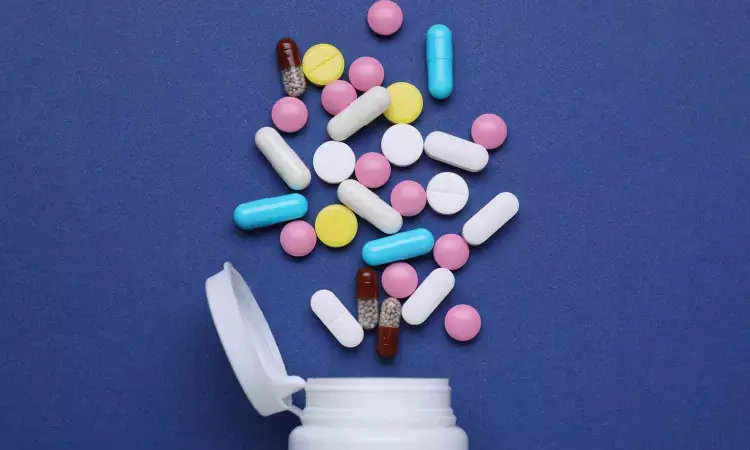- Home
- Medical news & Guidelines
- Anesthesiology
- Cardiology and CTVS
- Critical Care
- Dentistry
- Dermatology
- Diabetes and Endocrinology
- ENT
- Gastroenterology
- Medicine
- Nephrology
- Neurology
- Obstretics-Gynaecology
- Oncology
- Ophthalmology
- Orthopaedics
- Pediatrics-Neonatology
- Psychiatry
- Pulmonology
- Radiology
- Surgery
- Urology
- Laboratory Medicine
- Diet
- Nursing
- Paramedical
- Physiotherapy
- Health news
- Fact Check
- Bone Health Fact Check
- Brain Health Fact Check
- Cancer Related Fact Check
- Child Care Fact Check
- Dental and oral health fact check
- Diabetes and metabolic health fact check
- Diet and Nutrition Fact Check
- Eye and ENT Care Fact Check
- Fitness fact check
- Gut health fact check
- Heart health fact check
- Kidney health fact check
- Medical education fact check
- Men's health fact check
- Respiratory fact check
- Skin and hair care fact check
- Vaccine and Immunization fact check
- Women's health fact check
- AYUSH
- State News
- Andaman and Nicobar Islands
- Andhra Pradesh
- Arunachal Pradesh
- Assam
- Bihar
- Chandigarh
- Chattisgarh
- Dadra and Nagar Haveli
- Daman and Diu
- Delhi
- Goa
- Gujarat
- Haryana
- Himachal Pradesh
- Jammu & Kashmir
- Jharkhand
- Karnataka
- Kerala
- Ladakh
- Lakshadweep
- Madhya Pradesh
- Maharashtra
- Manipur
- Meghalaya
- Mizoram
- Nagaland
- Odisha
- Puducherry
- Punjab
- Rajasthan
- Sikkim
- Tamil Nadu
- Telangana
- Tripura
- Uttar Pradesh
- Uttrakhand
- West Bengal
- Medical Education
- Industry
Could lycopene-a plant extract-be an effective antidepressant?

Emerging evidence suggests that lycopene-a natural plant extract-may have antidepressant properties. New research in Food Science & Nutrition reveals the mechanisms behind its antidepressant effects.
In mice with depressive-like behaviors, brain analyses revealed impairments in the hippocampus. Lycopene treatment lessened these impairments and reversed the animals’ depressive-like traits.
Lycopene treatment boosted the expression of brain-derived neurotrophic factor (BDNF), a protein with roles in many aspects of brain function. Experiments indicated that a signaling pathway involving BDNF (called the BDNF-TrkB pathway, which helps regulate learning, memory, and communication between neurons) is inhibited in mice with depression, and that lycopene treatment alleviates this inhibition.
The study “offers an effective avenue for the development of novel antidepressant therapies,” the authors wrote. “We plan to conduct further verification in future studies and include multiple brain regions in our research.”
Reference:
Heyan Xu, Yuna Wang, Dandan Geng, Fengming Chen, Yujia Chen, Lisa Cynthia Niwenahisemo, Lei Shi, Ning Du, Ziqiang He, Xiaoming Xu, Li Kuang, Lycopene Alleviates Depression-Like Behavior in Chronic Social Defeat Stress-Induced Mice by Promoting Synaptic Plasticity via the BDNF–TrkB Pathway, Food Science & Nutrition, https://doi.org/10.1002/fsn3.70003
Dr Kamal Kant Kohli-MBBS, DTCD- a chest specialist with more than 30 years of practice and a flair for writing clinical articles, Dr Kamal Kant Kohli joined Medical Dialogues as a Chief Editor of Medical News. Besides writing articles, as an editor, he proofreads and verifies all the medical content published on Medical Dialogues including those coming from journals, studies,medical conferences,guidelines etc. Email: drkohli@medicaldialogues.in. Contact no. 011-43720751


